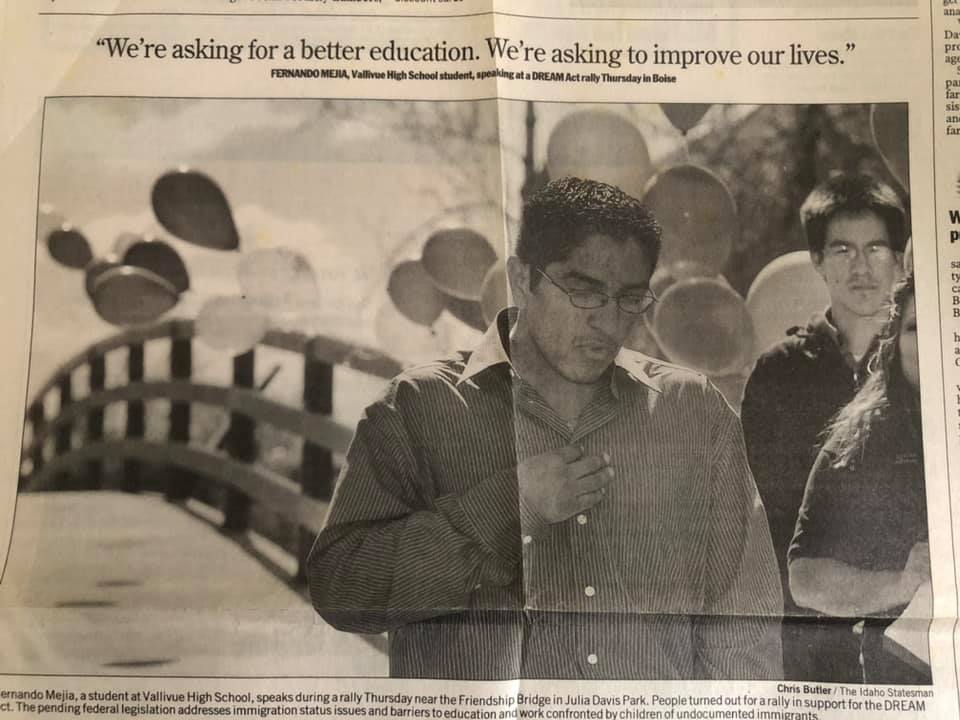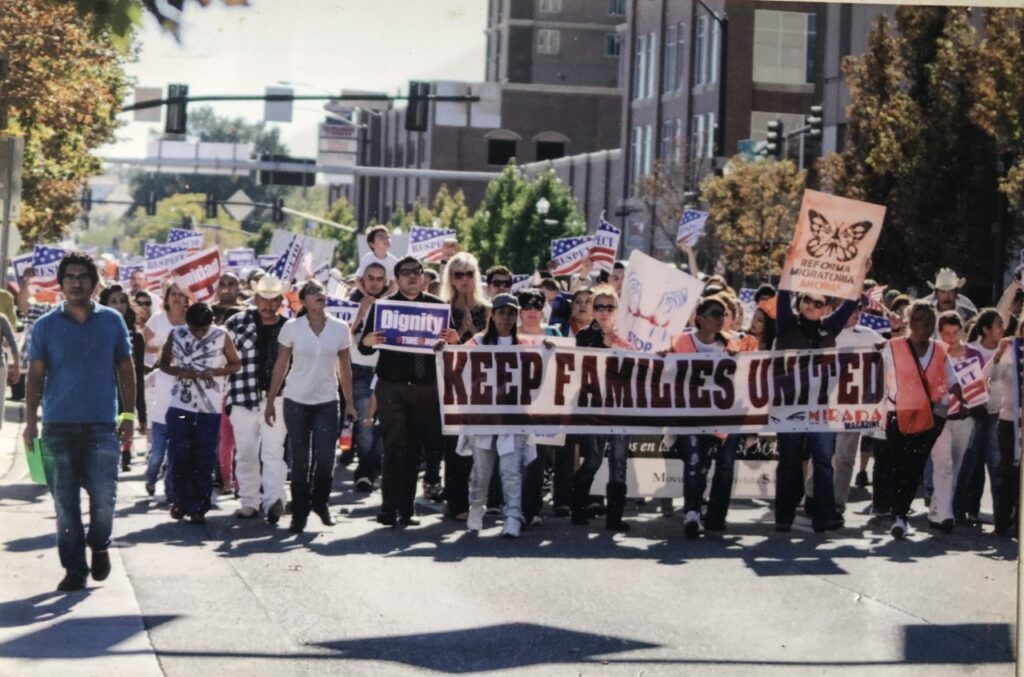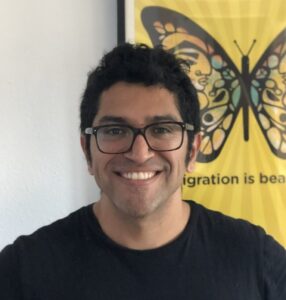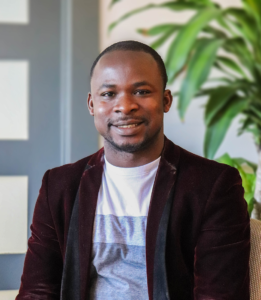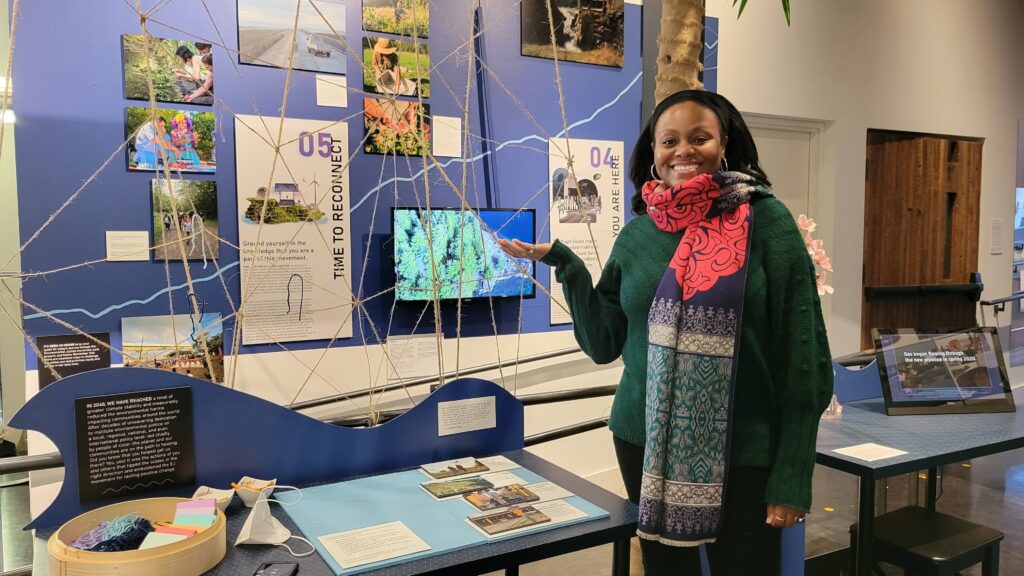Meet Sage’s permanent Co-Executive Director, Fernando Mejia Ledesma!
Fernando steps up as Puget Sound Sage and Sage Leaders’ permanent Co-Executive Director alongside Chrissy Shimizu. Acting Co-ED Eric Agyemang will return full-time to his role of Leadership Programs Director.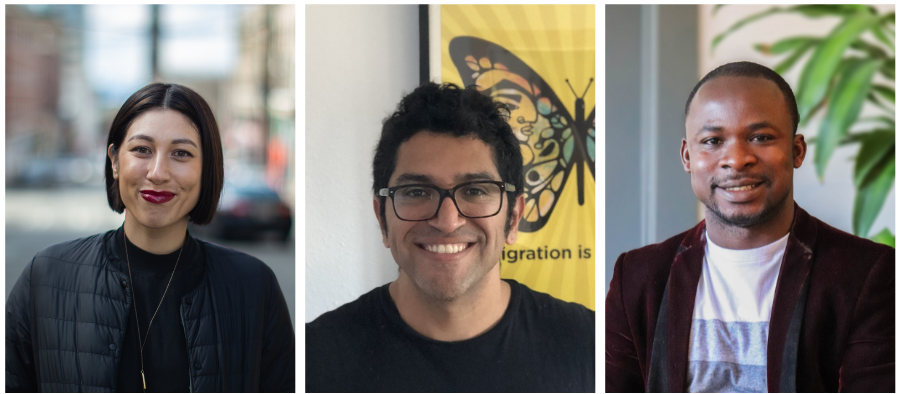
Puget Sound Sage has always been a place where shared leadership is a core value: as a practice of building consensus in community, a way to share power in coalition, and as a natural way of working and being for our predominately Black, People of Color and queer staff.
During our period of executive transition, we envisioned an organization with less burnout, stronger support structures, and more distributed leadership. We believe that a shared leadership model will not only make the work sustainable, but also elevate the leaders who bring specific skills and experiences essential in leading our diverse teams effectively. Since last fall, we have successfully implemented this new co-directorship model with Chrissy leading Sage’s internal operations and Eric leading our programmatic work.
We’re so grateful to Eric for stepping up to serve as Acting Co-ED over the last six months as we tested out this new shared leadership model. Eric’s experience in executive and shared leadership have greatly benefited our team when building out this model, and we’re happy to see him return full-time to what he does best: elevating our communities into civic and elected leadership as Sage’s Leadership Programs Director.
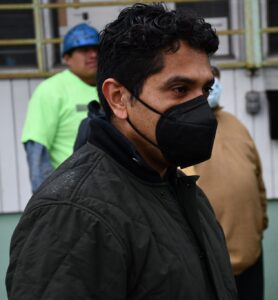 Fernando will serve as Sage’s Co-Executive Director of Policy and Programs
Fernando will serve as Sage’s Co-Executive Director of Policy and Programs
Fernando Mejia Ledesma is one of the earlier undocumented youths who helped build the movement infrastructure for immigrant rights. Born and raised in Cuautitlan Izcalli, Mexico, he came to the United States in search of a better life. From Florida, he moved across the country and attended high school in Idaho. He worked hard to learn English, but not having documents prevented him from attending college.
He started his work in community organizing in April 2004. Risking deportation, Fernando spoke about his status at a rally in support of the DREAM Act. He then worked as a youth organizer and leader with the Idaho Community Action Network (ICAN) from 2004-2009. During his time at ICAN, he highlights his work on the mass mobilizations of 2006 for immigration reform and building a statewide movement for in-state tuition for undocumented youth in Idaho.
From 2010 to 2014, he worked as a national organizer for the Alliance for a Just Society where he led their work on immigrant rights. He built the radio station KBWE as a tool for popular education and grassroots organizing in Idaho, played an interim role as Executive Director of ICAN, and led one of the most aggressive civic engagement campaigns in the country. He also worked in the Fair Immigration Reform Movement Executive Committee’s 2012 civic engagement campaign, which played a major role in re-electing Obama as a strategy to position immigration reform in 2013. Within the same year, he led an aggressive campaign for immigrant rights across the nation. In 2014, he brought together small businesses, small-town Democrats and Republicans, and undocumented immigrants to lobby Congress and got 1,000 small businesses to sign an ad published in The Hill in Washington, DC.
From 2014 to 2016, he began building One America’s grassroots environmental justice work, which helped shift the debate in Washington towards a racial, labor and climate justice perspective. He helped elect the first three Latinas in Yakima’s City Council as he was beginning to build one of the most robust grassroots bases in the state. Towards the end, he helped the organization position itself as an anti-Trump force. Last year, he worked with Communities for Our Colleges in passing a bold systemic policy for equity and access in higher education.
In these campaigns, Fernando worked as a bridge for different elements of the community to realize their collective power to create change. He has also served on the staff of Washington Community Action Network, United We Dream Network, and UFCW Local 21.
Why are you excited to join the Sage team?
“I’ve been in the movement for many, many years and seen a lot of transitions. I see transitions as a really good opportunity to build up, go deeper, and build power. Based on the things I was learning about Sage, the team, your politics, your vision, I really thought that it aligned with what I’ve been dreaming about. We have some power, but I think the organization has the potential to amplify that power in the name of justice and liberation.
The first thing that really drew me to Sage was the people. As I meet more and more folks in the team, my initial instinct about Sage was confirmed. I see so much passion and heart within the organization and I’m excited to be in the movement work with everyone.
I also see Sage’s work as unique, in a sense of its intersections within climate justice, economic justice and racial justice, with a very clear worker justice perspective. To me, that presents a lot of opportunities to get into very complex conversations and issues, but in a way that is real to people.”
“I really believe in grassroots organizing as a democratic practice, and I think our job is to close that gap between the academic, policy and political language and how these issues are really impacting people.”
What about shared leadership excites you?
“Shared leadership is effective, sustainable, and allows us to celebrate the people that we want represented in positions of power.
I believe we need to share power in our society, and I think it’s most effective when you don’t really see it. In order to do that in movement work, we need more leaders. I actually think it’s more effective that you have multiple decision makers when it comes to building power.
The other piece is about sustainability. I’ve seen a lot of executive directors getting burnout, and that has been one of my fears stepping into executive leadership.
One of the things that I have learned in these last 18 years is that change really takes a lot of time. So, if I’m dedicating the next 20, 30 years, the rest of my working life to the movement, I want to make sure that the work is sustainable, which means sharing the work. I think the shared leadership model is going to make the organization healthy, effective and at the same time achieve deep lasting change in society.”
We’re excited to have Fernando lead our policy and programs! He will work alongside Chrissy Shimizu, Sage’s Co-ED of Development and Operations.
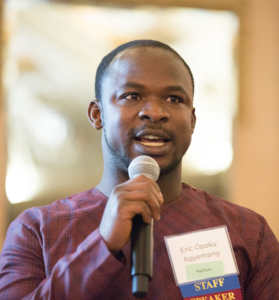 Eric will return to his role as Sage’s Leadership Programs Director, and shares what he’s been most proud to have accomplished in his time as Acting Co-ED:
Eric will return to his role as Sage’s Leadership Programs Director, and shares what he’s been most proud to have accomplished in his time as Acting Co-ED:
“It has been an incredible and humbling experience how much our team have collectively achieved within six months in the face of a pandemic including:
- The ratification of our first Collective Bargaining Agreement (CBA) with our staff union, Workers for a Just Transition.
- Eighteen (18) emerging leaders going through our Community Leadership Institute to advance equity on boards and commissions.
- A new and soon-to-be launched organizing initiative and collaboration between labor and community partners to advance racial and gender equity, and climate justice, centering on Black Liberation: The Seattle Strategic Organizing Center (SeaSOC).
- And adopting and testing a successful Co-Executive Director model with Chrissy Shimizu!”
What are you most excited about as you step back into the role of Leadership Programs Director?
“I am excited to be fully back to what I enjoy doing which is building leadership to support and sustain our movement work. This year, our team will be expanding our Community Leadership Institute to Clark County in Vancouver, WA as part of our 10-year vision to increase BIPOC voices and representation on all decision-making tables across Washington state.”
Fernando, Chrissy and Eric reflect on their individual leadership styles:
Chrissy: “The word “leader” always felt foreign and intimidating to me. Like it meant I had to twist myself into an idea of success that was power hungry and that looked nothing like me. My leadership style is a spiritual practice. A process of healing, reclamation, and love; cultivating an inner joy and deep set of principles that reach outward into the relationships and spaces that make true change possible.”
Fernando: “Music plays a key role in my leadership style. Sonideros is a great example. As a DJ you get to pick the music, provide direction as to the type of dance folks get to dance, but you as the DJ sometimes have to stop playing the music, pass the mic to someone else, and then get into the dance floor. This is a management analogy (and grassroots policy development one too). To understand the impact of your direction or to understand what’s happening in the community sometimes you have to get into the dance floor. And to gain perspective and insight you have to create a temporal and spatial space/distance to understand the dance – this is when you go back to being a DJ. DJ-ing at one point getting to the dance floor at another (back and forth).”
Eric: “The soccer team, AKA inclusive leadership, reflects my leadership style – There’s strong team spirit and a shared understanding of working towards a common goal. Each member of the team, including goalkeeper, strikers, defense, midfielders, come with unique talents and skills needed to achieve the team goal. Hence, each member of the team is equally valued. They uplift and care for each other because each member’s success is the success of all.”
This year, Chrissy and Fernando will be leading Sage’s strategic planning process which will map out our work for the next several years. We are rooting ourselves in our history, our learnings, and reflections to guide us into this new chapter, and we hope you can join us.
Program Updates
The motion for a King County Equitable Development Initiative passed this week!
After months of organizing, our coalition of BIPOC-led community organizations celebrated the passage of a county-wide Equitable Development Initiative on Tuesday, March 15th.
Over the next year, King County will sponsor a community-led workgroup to co-design an Equitable Development Initiative (EDI) program, which will provide development support and resources to communities impacted by a wave of gentrification and displacement that has spread to nearly all corners of King County.
Passing a county-wide equitable development initiative is the first step of our coalition’s long-term vision for Community Stewardship of Land. Only with our homes and neighborhoods protected from real estate speculation can we withstand the global forces that have dispossessed BIPOC communities of their places for hundreds of years. The more land we take off the real estate market and into collective ownership, the more stable our communities will be, now and far into the future.
Community Corner
We Are Changing the Tide: Community Power for Environmental Justice is now on display at the Wing Luke Museum. Sage’s very own Climate Justice Organizer Yolanda Matthews spent the past few months working alongside community leaders brainstorming, ideating, and generally advising how to translate their transformative climate justice work into art.
Chief Seattle Club housing project rooted in Indigenous culture. The organization is opening 80 units in Pioneer Square to provide housing for previously unhoused residents, most of whom are Native.
Seattle artists laying groundwork toward community purchase of former INS building, now home to 100-plus studios.
REI Workers in New York Vote to Unionize. The 88-to-14 result at a Manhattan store creates the first union at the prominent outdoor equipment and apparel retailer.
Initially published on Friday, March 18, 2022


